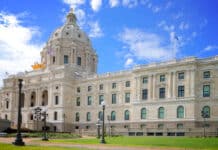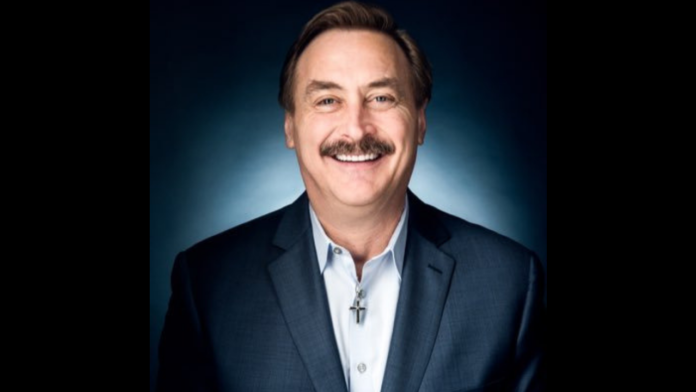The opioid crisis has ruined lives, broken homes, and stolen loved ones from families. President Donald Trump has pledged to “liberate” the American people from this devastating outbreak. In less than two years, our president has set some critical policy improvements in place. Major upgrades are underway to dramatically reduce the flood of opioid-related deaths.
Just how big is this crisis? Here are some numbers. In 2017, drug overdoses killed more than 70,000 people in America, and opioids were responsible for almost three-fourths of those deaths. That’s basically an entire suburb — wiped out, gone, in just 12 short months.
For many years, the opioid epidemic spread silently, and politicians did not recognize the full magnitude of the issue until it became a national disaster. Our country finally has leaders who are dedicated to saving American lives and finding real solutions for those chained by this addiction.
For starters, President Trump declared a national public health emergency during his first year in office. Since then, he’s signed legislation adding nearly $5 billion in funding to address the opioid crisis and has directed federal law enforcement agencies to crack down on the sources of the problem — drug trafficking and fraudulent prescriptions. He even donated one-quarter of his 2017 salary as president — $100,000 — to the Department of Health and Human Services for its anti-opioid initiatives.
The Trump administration is also promoting additional cooperation between federal and state authorities, recently launching the Maternal Opioid Misuse program to help opioid-dependent pregnant women and infants. This partnership will save lives and help stop the cycle of addiction in families.
These efforts have already produced a major impact. The latest estimates show that the number of prescription drug deaths has leveled off in recent months, and early data from 2018 show a plateau and possibly small decline in drug overdose deaths. That’s according to U.S. Department of Health and Human Services Secretary Alex Azar.
Additionally, important discussions are being held to connect with those directly affected.
More than $1 billion has been allocated to state governments in September, giving communities the resources they need to make changes at the local level. This was made possible by a grant awarded by the U.S. Department of Health and Human Services to help combat the opioid crisis.
In October, the President continued to keep his promise, signing new legislation that dramatically strengthens the federal government’s approach to fighting opioid addiction. In partnership with the Justice Department and Drug Enforcement Administration (DEA), he also announced plans to cut opioid production quotas by 10% in 2019. Experts say that overproduction of these drugs has contributed a great deal to the epidemic.
“We are going to end it or we are going to at least make an extremely big dent in this terrible, terrible problem,” President Trump vowed when signing the new legislation. “We have mobilized the entire federal government to address this crisis.”
The new law will be a real game changer for fighting the drug epidemic in three key areas.
First, U.S. authorities will now have more power to intercept drugs that are coming into the country illegally. The U.S. Postal Service, for instance, will now be required to screen packages for fentanyl shipped from overseas.
Second, the law will fund research into non-addictive alternatives to opioids for treating pain, as well as improving the oversight of opioid prescriptions at both the state and federal levels.
Third, the legislation will set aside additional funds to increase treatment options, which will improve the way existing programs cover addiction treatment. Another goal is to remove confusing rules that limit the coverage of treatment by Medicaid.
As a former addict myself, the recovery part is especially important to me. When I was finally to the point where I could no longer keep up with the demands of my addiction, I prayed to God and asked Him to free me from the desire of ever wanting to use again. The very next day, I felt the most peaceful feeling I’ve ever had – and my addictions were totally gone. He had answered my prayer. I feel very strongly that when anyone comes to that place of willingness, help and hope are ready for them.
That’s why I’m launching the Lindell Recovery Network to help connect addicts with trusted, vetted treatment centers and mentors who have overcome the same addiction. I strongly believe, “with God, ALL things are possible.” Faith-based treatment works. I start by showing addicts stories of people just like them who have overcome their addiction. There will also be mentors who have overcome their addictions and are ready to give addicts hope that if I have overcome my addiction, they can too.
President Trump has shown that he also understands the importance of faith-based treatment programs like the Salvation Army, Teen Challenge, and Union Gospel, and I believe his efforts will be a powerful example to others in need of this life-saving care. I want to help people become free in Christ; to heal the parts of themselves they were using drugs and alcohol to medicate. I used to have a spirit of unworthiness, but I’ve been delivered of that. You need to address the root cause that’s driving the addiction, not just put a band-aid on the problem.
Politicians in Washington are taking serious action to address the opioid crisis that has afflicted our communities for years. The President’s policies have already made a big dent in the problem. With the ongoing support of Congress working alongside him, I believe we have the platform we need to offer treatment, support, programs and most importantly – hope – to those in need.
Mike Lindell is the inventor and CEO of MyPillow, which is headquartered in Chaska, MN. He is also the founder of the Lindell Foundation (lindellfoundation.org) and Lindell Recovery Network.
*******
Do you like Alpha News? Help us reach more readers in 2019 by donating today.

















